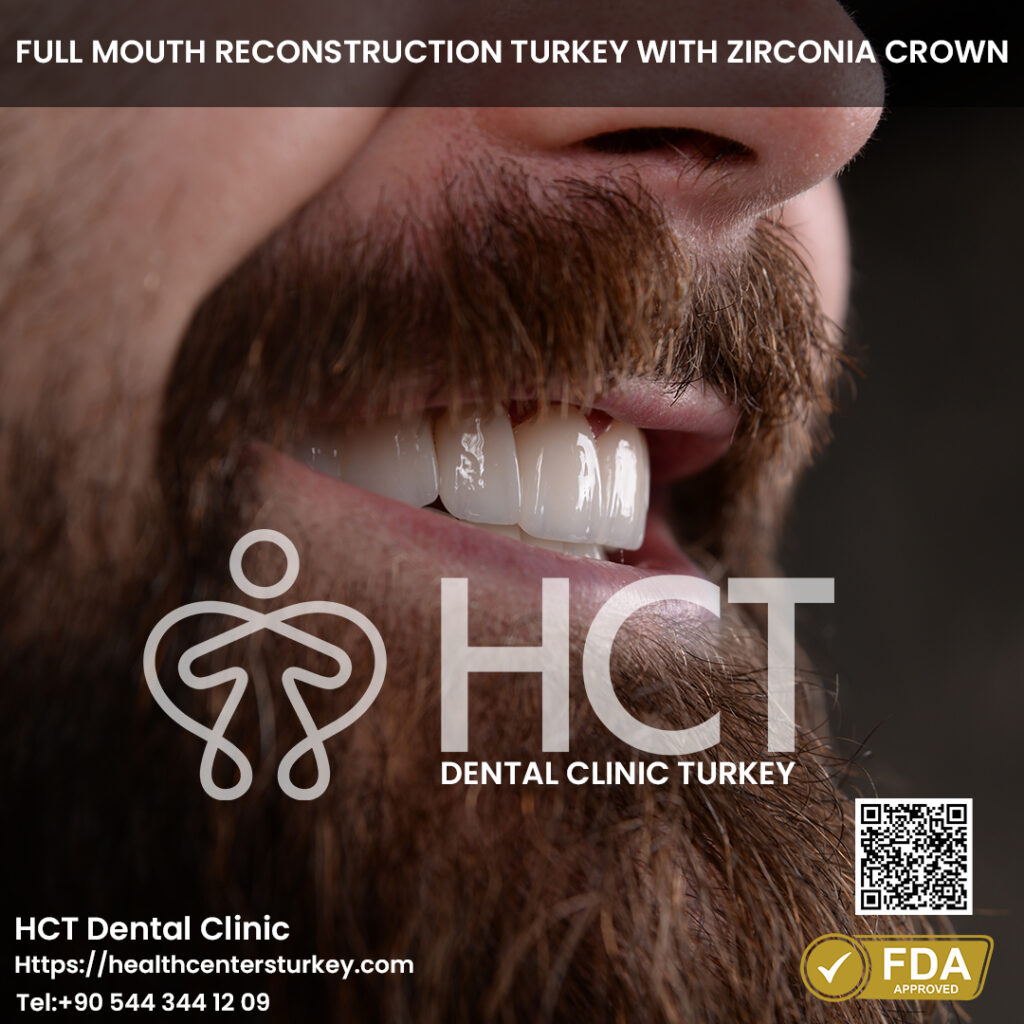Everything You Need to Know about Dental Procedures in Turkey
Dental implants have turn out to be a popular answer for those trying to replace missing teeth. Understanding how these implants can affect adjacent teeth is important for anybody contemplating this process, in addition to for dentists and specialists concerned in dental care.

One vital aspect is that dental implants are designed to be anchored into the jawbone, which implies they are independent of adjacent teeth. Unlike dental bridges, which regularly require the alteration of neighboring teeth, implants can fill the gap without compromising the health or structure of these surrounding teeth.
This independence helps keep the integrity of adjacent teeth. When a tooth is lost, there is normally a natural tendency for neighboring teeth to tilt or shift into the empty area. Such movement can result in misalignment, which may have an effect on chunk and general oral health. By inserting an implant, you successfully prevent this potential shift, promoting higher alignment in the long term.
Enhance Your Smile with State-of-the-art Oral Health Techniques
Additionally, dental implants assist maintain bone density within the jaw. A natural tooth root provides stimulation to the encircling bone, maintaining it healthy and robust. When a tooth is missing, the bone can start to deteriorate due to lack of stimulation. With a dental implant mimicking a natural root, bone loss can be minimized, which not directly benefits adjacent teeth by preserving the general structure of the dental arch.
While dental implants are advantageous, improper placement can impact neighboring teeth. If an implant is positioned too shut to another tooth, it may exert undue pressure on that tooth, resulting in discomfort or potential damage. Proper planning and imaging methods are essential for avoiding such issues.
Exceptional Dental Services Focused on Quality Care
Moreover, sustaining good oral hygiene is crucial after receiving an implant. If not correctly cleaned, surrounding teeth may turn out to be susceptible to dental points such as decay or gum disease. This underscores the significance of diligent oral care following the process to ensure each implants and adjacent teeth remain wholesome.
Regular dental check-ups are also very important for monitoring the health of surrounding teeth. Dentists can establish any shifts or potential problems early, allowing for well timed interventions. This proactive method ensures that both the implant and adjacent teeth can coexist with out issues.
All-Inclusive Oral Health Solutions in Turkey for a Beautiful Smile
Another consideration is the impact of implants on chew drive. When a single tooth is missing, the load of chewing may shift to adjacent teeth, probably resulting in put on or pressure. Implants restore proper chew dynamics by redistributing forces within the mouth, which can shield surrounding teeth from undue stress.
Some sufferers may increase issues about the appearance of dental implants. Well-placed implants can blend seamlessly with present teeth, bettering overall aesthetics. In contrast, failing to exchange a missing tooth can result in aesthetic issues, including collapsing of facial structure and modifications in smile dynamics.
It's additionally price discussing the psychological aspects of dental health. Experiencing tooth loss can adversely affect one’s shallowness and willingness to have interaction socially. By restoring your smile with implants, you can positively affect not solely your oral health but additionally your emotional click here now well-being.
Long-term success of dental implants often hinges on various elements, including the affected person's health, maintenance habits, and the standard of the preliminary process. If adjacent teeth are wholesome and properly cared for, the chances are high that they'll continue to thrive alongside the implants.
Enhance Your Dental Aesthetics through Cosmetic Dentistry
In conclusion, dental implants play a vital role in not just restoring individual smiles, but in preserving the health and structure of adjacent teeth. By preventing shifting, maintaining bone density, and redistributing chew forces, implants can make certain that surrounding teeth remain in optimal condition. Proper placement, hygiene, and regular dental visits can further enhance the benefits of dental implants, leading to a healthier, more assured smile for years to come back.
- Dental implants may help preserve the alignment of adjacent teeth by offering a steady anchor, preventing adjacent teeth from shifting into the gap left by a missing tooth.
- The presence of an implant may stimulate bone growth in the jaw, serving to to protect the general structure and integrity of the adjacent teeth.
- Unlike conventional bridges, implants don't require alteration of surrounding teeth, thus preserving their power and anatomy.
- Implants can improve the distribution of chew forces evenly across the dental arch, reducing the stress on neighboring teeth during chewing.
- A well-integrated dental implant can decrease the danger of bone loss within the space surrounding adjacent teeth, contributing to their long-term health and stability.
- The aesthetics of adjacent teeth could be improved because of the help offered by implants, which may lead to better total beauty outcomes.
- With correct placement, dental implants can prevent gum recession round adjacent teeth by maintaining adequate dental architecture.
- Implants may help mitigate the risks of periodontal disease in close by teeth by selling healthy gum tissue and providing a washable floor.
- Long-term success of dental implants can lead to improved oral hygiene routines, which in turn advantages the health of surrounding teeth.
- The improved practical ability of an implant can encourage patients to chew more successfully, thus increasing saliva manufacturing and aiding within the protection of adjacent dental tissues.undefinedHow do dental implants affect adjacent teeth?
What are dental implants and the way do they work together with adjacent teeth?undefinedDental implants are artificial tooth roots which may be surgically placed into the jawbone. They present a secure foundation for replacement teeth whereas making certain minimal disruption to adjacent teeth, preserving their integrity and alignment. Uncover Comprehensive Dental Treatments within Turkey.
Affordable Cosmetic Enhancements in Turkey
Can dental implants cause problems for close by natural teeth?undefinedGenerally, dental implants don't harm adjacent natural teeth. However, if the implant is not positioned appropriately or if there’s inadequate oral hygiene, it could result in complications corresponding to adjacent tooth decay or gum disease.

Will getting a dental implant change the best way my adjacent teeth feel?undefinedMost patients report no change in the sensation of adjacent teeth after check that implant placement. However, it may take some time to regulate to the presence of the implant, much like how one could adapt to different dental restorations.
Can dental implants assist protect the health of adjacent teeth?undefinedYes, dental implants might help maintain the health of adjacent teeth by preventing bone loss that can happen after tooth loss. This preservation helps the alignment of close by teeth, decreasing the danger of shifting or misalignment.
Remarkable Teeth Clinics Accessible to International Patients in Turkey
Do I want to change adjacent teeth when getting an implant?undefinedTypically, adjacent teeth don't need alteration when putting an implant. This is likely considered one of the advantages of dental implants over conventional bridges, which frequently require reshaping adjacent teeth for help.
How does the healing strategy of an implant have an result on close by teeth?undefinedThe healing process involves osseointegration, the place the implant fuses with the jawbone. During this time, adjacent teeth stay unaffected and retain their perform, though it’s important to comply with post-operative care suggestions. All-Inclusive Dental Packages Featuring Cosmetic Options.
Explore Affordable Dental Services in Turkey
Can dental implants lead to bone loss round adjacent teeth?undefinedIf dental implants are positioned properly and cared for adequately, they should not result in bone loss around adjacent teeth. In truth, they might help stimulate bone growth, combating the natural bone loss that usually follows tooth extraction.
What precautions should I take to protect adjacent teeth after getting an implant?undefinedRoutine dental hygiene, together with brushing and flossing, along with common dental check-ups, is crucial. Avoiding onerous foods and following your dentist’s aftercare instructions may also protect each the implant and adjacent teeth.
Is it common for adjacent teeth to shift after an implant is placed?undefinedIt's not typical for adjacent teeth to shift after an implant placement, particularly when the implant is placed appropriately and maintained properly. If there’s any motion, it may be due to other underlying points that should be evaluated by a dental skilled.